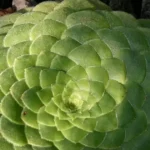Succulents are good for air because they absorb carbon dioxide during photosynthesis and release oxygen, improving indoor air quality. Their ability to thrive in dry conditions also helps maintain humidity levels. Their low-maintenance nature makes them a popular choice for enhancing air quality in homes and offices.
Discover the secret to cleaner, fresher air in your space! Are succulents good for air? Let’s unveil the answer and learn how these low-maintenance plants can be your natural air purifiers. Embrace the green revolution and bring succulents into your home or office for a breath of fresh air.
Succulents are good for air as they help improve indoor air quality by absorbing carbon dioxide and releasing oxygen. Their unique ability to retain moisture can also enhance humidity levels in drier environments. These low-maintenance plants make a stylish and practical addition to your space, promoting better air quality.
The Rise of Indoor Gardening
Indoor gardening has gained immense popularity in recent years, as more people seek to create green spaces within their homes and workspaces. This trend has led to increased interest in houseplants, including succulents. However, the benefits of succulents go beyond their visual appeal and easy maintenance.
The Quest for Cleaner Air
With growing concerns about indoor air quality and its impact on health, people are exploring ways to purify and freshen the air they breathe. This quest for cleaner air has given rise to numerous studies and experiments involving different plant species. Succulents have become a subject of interest in this regard.
Succulents and Air Quality
When considering their care, the question should succulents be in direct sunlight becomes crucial. Succulents generally thrive in bright, indirect sunlight or partial shade. Placing them in direct sunlight for extended periods can lead to sunburn and damage their delicate tissues. Therefore, it’s important to strike a balance in their light exposure to ensure their health and vitality.
Photosynthesis and Oxygen Production
Like all plants, succulents undergo photosynthesis, a process in which they absorb carbon dioxide from the air and convert it into oxygen. Oxygen is essential for human and animal respiration, making it a crucial component of indoor air quality.
Air Purification
Succulents help improve air quality by acting as natural air purifiers. They absorb various airborne pollutants, such as volatile organic compounds (VOCs), which are released from common household items like paints, cleaning agents, and plastics. By removing these pollutants from the air, succulents contribute to a healthier indoor environment.
| Key Point | Description |
| Succulent Selection | Certain succulents like Aloe vera and Snake Plant are known for their air-purifying properties. |
| Air Quality Improvement | Succulents help remove toxins and enhance indoor air quality by absorbing pollutants. |
| Low Maintenance | Succulents are low-maintenance plants, making them an attractive choice for air purification. |
| Aesthetically Pleasing | Succulents are not only functional but also add a touch of beauty to interior spaces. |
| Health Benefits | Improved air quality can lead to better health and well-being for occupants. |
| Proper Care | To maximize air-purifying effects, succulents require appropriate care and maintenance. |
| Placement | Succulents should be positioned in well-lit areas to thrive and effectively purify the air. |
Balancing Indoor Humidity
Another way succulents positively affect indoor air quality is by regulating humidity levels. The moisture stored in their leaves can be released into the air when needed, helping to maintain optimal humidity levels in your living or working space.
Benefits of Humidity Control

Balanced indoor humidity has several advantages, including reducing the risk of respiratory problems, dry skin, and static electricity. Succulents can make your indoor environment more comfortable and conducive to well-bein.
The Appeal of Low Maintenance
One of the primary reasons succulents have gained popularity is their low maintenance requirements. They thrive in a wide range of conditions and are resilient to neglect, making them an ideal choice for busy individuals or those new to gardening.
esthetic Versatility
Succulents come in a vast array of shapes, colors, and sizes, allowing you to personalize your indoor space with plants that match your décor and style. Their versatility and unique appearance make them a favorite among interior designers and gardening enthusiasts.
The Best Succulents for Air Quality
Aloe Vera (Aloe barbadensis miller)
Aloe vera is renowned for its soothing properties and ability to heal minor burns and skin irritations. Beyond its medicinal uses, it is a proficient air purifier, removing toxins from the air.
Snake Plant (Sansevieria trifasciata)
The snake plant, also known as the mother-in-law’s tongue, is a robust and adaptable succulent. It excels at purifying the air by absorbing harmful chemicals and releasing oxygen during the night.
Peace Lily (Spathiphyllum)
While not a succulent, the peace lily is an excellent choice for improving air quality. It effectively removes airborne toxins, making it a valuable addition to any indoor space.
Echeveria
Echeverias are visually striking succulents that are also proficient air purifiers. They add a touch of elegance to your interior while helping keep the air clean.
Tips for Growing Healthy Succulents
Succulents typically require plenty of bright, indirect light. Be sure to place them near a sunny window or provide artificial light if natural light is insufficient.
Watering
Overwatering is one of the most common mistakes made by succulent enthusiasts. These plants prefer to dry out between waterings. Water sparingly and ensure proper drainage to prevent root rot.
Soil
Use a well-draining potting mix designed for succulents and cacti. This helps prevent waterlogged soil and keeps your succulents healthy.
Container
Choose containers with drainage holes to allow excess water to escape. Proper drainage is essential for preventing root rot and maintaining the overall health of your succulents.
FAQ’s
Do succulents increase oxygen?
Succulents do release oxygen during photosynthesis, but their contribution to indoor air quality is relatively small compared to other plants due to their slower growth and lower leaf surface area.
Can I keep succulents in AC?
Yes, you can keep succulents in air-conditioned environments, but it’s important to ensure they still receive adequate light and maintain the right temperature and humidity levels to promote their health and well-being.
Is it OK to keep succulents indoors?
Yes, it is okay to keep succulents indoors, provided they receive adequate sunlight, well-draining soil, and proper care to thrive in an indoor environment.
Which succulents are good for air purifying?
Succulents such as Aloe vera, Snake Plant (Sansevieria), and Peace Lily (Spathiphyllum) are good choices for air-purifying qualities due to their ability to remove toxins from the air and improve indoor air quality.
Conclusion
Succulents are not only eye-catching and easy to care for but also have the potential to enhance indoor air quality. Their capacity to remove pollutants and regulate humidity, combined with their low-maintenance nature, makes them a valuable addition to any indoor environment. Whether you’re a seasoned gardener or just starting your journey into the world of plants, consider incorporating succulents into your living or working space. They bring natural beauty and cleaner air into your life, making the choice to go green a breath of fresh air.










